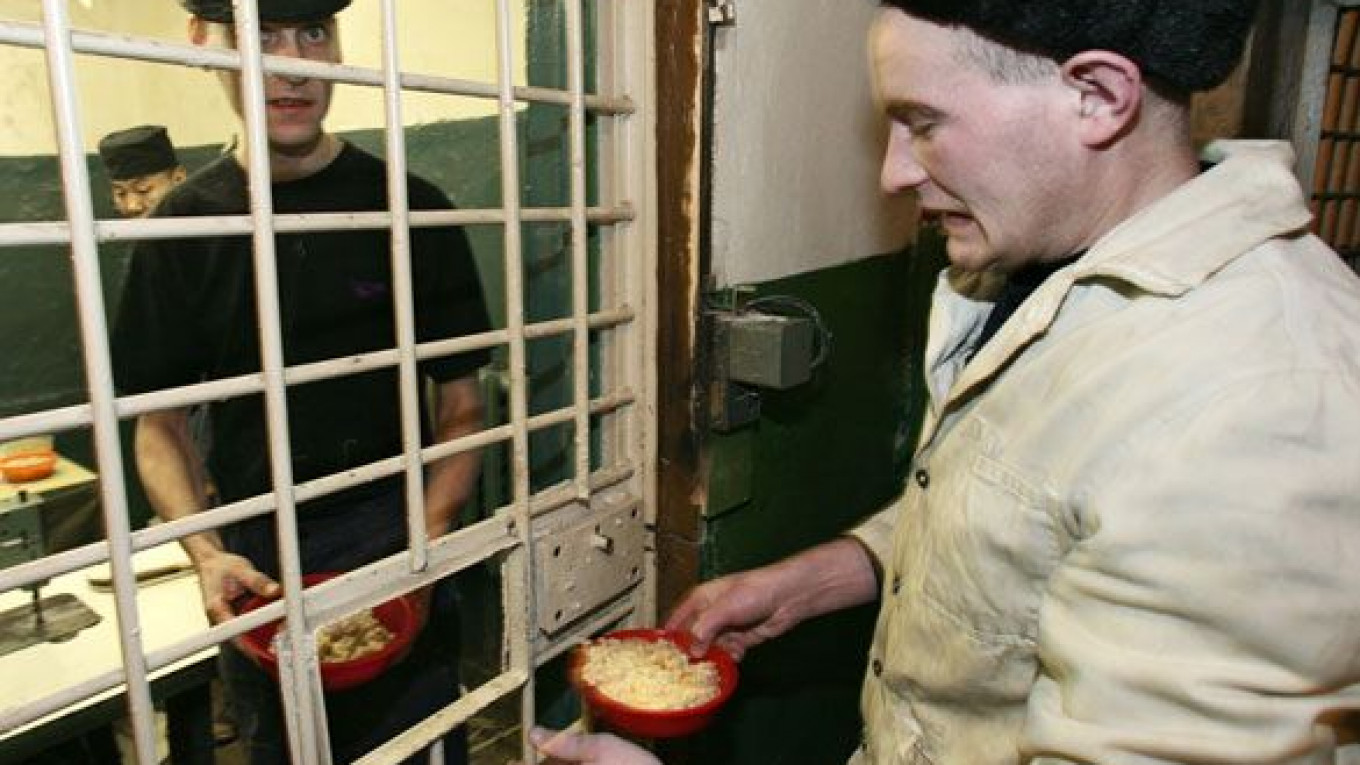Two key advisers to Presidents Dmitry Medvedev and Barack Obama got down to business on the reset of U.S.-Russian relations Thursday by visiting one of Russia's most well-known prisons.
The Civil Society Working Group, headed by Obama's top Russia expert Michael McFaul and Medvedev's first deputy chief of staff Vladislav Surkov, dropped by Prison No. 2 in the city of Vladimir, 200 kilometers east of Moscow.
The prison, better known as Vladimirsky Central, was founded in 1783 and counts U.S. pilot Gary Powers and Soviet dissident Vladimir Bukovsky among its former inmates. It also features in a 1990s cult song "Vladimirsky Central" by chanson singer Mikhail Krug.
The lunchtime visit lasted less than an hour, prison spokeswoman Inessa Galitskaya told The Moscow Times by telephone.
"They entered cells and spoke with inmates, who readily answered questions," Galitskaya said.
The delegation also peeked into the medical ward, the prison chapel and an Internet room, where inmates are allowed to visit a restricted number of web sites, she said.
The working group of representatives from government and nongovernmental organizations discussed conditions for prisoners and migrants in both countries during a meeting in Vladimir.
The talks behind closed doors lasted the whole day, and no concrete results emerged by late Thursday.
Ombudsman Vladimir Lukin told reporters during a break that the Americans had openly addressed problems in the U.S. prison services. "They surely have strengths but also difficulties, and they talked quite frankly about that," he told Interfax.
Critics have pointed to appalling conditions in Russian prisons after the recent deaths of lawyer Sergei Magnitsky and businesswoman Vera Trifonova in Moscow detention centers. Their supporters say they were denied proper medical care.
Lukin on Wednesday handed Medvedev a list of those prisons where the rights of inmates are violated most often, the Kremlin said on its web site.
The working group, part of a greater U.S.-Russian Bilateral Presidential Commission, met for the second time Thursday. Its first session in January in Washington focused on corruption and child adoptions.
A Message from The Moscow Times:
Dear readers,
We are facing unprecedented challenges. Russia's Prosecutor General's Office has designated The Moscow Times as an "undesirable" organization, criminalizing our work and putting our staff at risk of prosecution. This follows our earlier unjust labeling as a "foreign agent."
These actions are direct attempts to silence independent journalism in Russia. The authorities claim our work "discredits the decisions of the Russian leadership." We see things differently: we strive to provide accurate, unbiased reporting on Russia.
We, the journalists of The Moscow Times, refuse to be silenced. But to continue our work, we need your help.
Your support, no matter how small, makes a world of difference. If you can, please support us monthly starting from just $2. It's quick to set up, and every contribution makes a significant impact.
By supporting The Moscow Times, you're defending open, independent journalism in the face of repression. Thank you for standing with us.
Remind me later.


